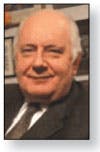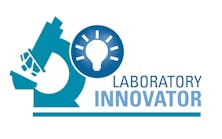The Observatory
News/ Trends/ Analysis
In Memoriam
Solution standardizes blood collection,
stabilization, and purification. PreAnalytiX GmbH, a QIAGEN/BD
company, received marketing clearance from the FDA for the automation of
its PAXgene Blood RNA system on the QIAcube, enabling labs to automate
an IVD-purification method, which is part of an integrated IVD
blood-collection method for intracellular RNA. When blood is collected
in a lab, there are challenges by variations in expression profile and
sample degradation, which can be caused by sample collection, storage,
and transport conditions. This can significantly alter the patient
profile from what it was in vivo to what is seen at the point of
analysis. The product is designed to stabilize whole blood in the tube
at point of collection. The PAXgene blood-collection tube contains a
proprietary reagent which immediately stabilizes intracellular RNA for
up to three days at room temperature and up to 50 months at -20^0C to
-70^0C.The ability to store and archive samples minimizes the urgency to
process them, thus enhancing lab efficiency.
Whistleblower lawsuit reported by The
Dark Daily. Filed under seal in 2005, a lawsuit brought by the
owner and CEO of Hunter Laboratories in California has now been joined
by that state in a qui tam lawsuit that alleges seven other
labs have overcharged Medi-Cal hundreds of millions of dollars since at
least 1995. According to the state's attorney general, over the past 10
years, seven labs have allegedly given deep discounts (up to and
including free services) when receiving direct payments from doctors,
patients, or hospitals. In exchange for these discounts, the defendant
labs expected their customers to refer all their other patients to them.
Those referral patients' tests were paid — sometimes at a rate six times
that for referring doctors or hospitals — by an insurance company,
Medicare, and Medi-Cal. According to California law, this amounts to
providing an illegal kickback. The state attorney general pointed out
that under this operation, labs that followed the law could not
effectively compete and were sometimes forced to sell or go out of
business. If this
qui tam lawsuit generates a large settlement, says the March 27
article, the result might encourage federal health regulators to take a
long look at how Medicare program regs address the way in which labs
discount services to office-based physicians.
Fifteen hospital employees fired for looking at
OctoMom's files. A Kaiser Permanente spokesman in California said that
15 employees were fired after improperly accessing Nadya Suleman's
medical records. Suleman is the single woman whose
in vitro fertilization added octuplets to the six children she
already had at home. No evidence was uncovered that indicated her
patient information was revealed to any entity outside of the hospital.
Aside from the 15 who lost their jobs, eight other people were
disciplined. According the Kaiser Permanente report, numerous training
sessions were held after the incidents that stressed the importance of
patient privacy and confidentiality.
Biotech company Seegene joins with Randox
Labs. Seegene Inc. and Randox Laboratories have entered into an
agreement in which Randox will obtain a non-exclusive license to
Seegene's Priming Oligo (DPO) technology to develop high-throughput
diagnostic screening panels capable of simultaneously detecting a wide
variety of infectious pathogens that cause either respiratory or
sexually transmitted diseases.
Awards
Influential journal wins award.
Archive of Pathology & Laboratory Medicine — the only journal
dedicated to pathology and pathologists and published by the College of
American Pathologists was named one of the top 100 most influential
journals in biology and medicine of the past 100 years by the BioMedical
& Life Sciences Division of the Special Libraries Association (SLA). An
award certificate will be given to recipients on June 16 at the SLA's
100th Annual Convention in Washington, DC. Archives was first
published in 1926 by the American Medical Association as a member of the
JAMA and Archives family of journals.
Unsterilized equipment linked to a VA HIV
victim.
The Associated Press has been following the story of the Veterans
Administration's (VA) warning earlier this year that more than 10,000
veterans needed to get blood tests because of possible exposure to
contamination of endoscopic equipment at VA sites in Murfreesboro, TN;
Augusta, GA; and Miami. While the VA cautioned that there was no way to
prove 16 of its patients contracted hepatitis because of treatment in
its facilities, it did say it was investigating “the possibility of such
a relationship.” A VA patient who has tested positive for HIV was among
the thousands treated with unsterilized equipment at the three
locations. At each site, the equipment was not properly sterilized
between treatments, a problem that dates back more than five years at
the Tennessee and Florida facilities.
Study results on DNA vs. Pap tests.
The New England Journal of Medicine recently published the
results of a study comparing DNA screenings to Pap smears through an
eight-year study of 130,000 women in India. The study, financed by the
Bill and Melinda Gates Foundation, involved screening for human
papillomavirus with a DNA test, rather than using the Pap test. While
the annual Pap smear is been “remarkably effective” according to
gynecologists who use it, the new test might afford women older than 30
to have the DNA test once every three, five, or even 10 years (depending
on which expert is asked). A professor of gynecology at Stanford's
medical school says the study is “another nail in the [Pap smear]
coffin, which will soon be of mainly historical interest.”
Medical history
Alabama mass grave hints at 1870's epidemic.
On the last day of March in downtown Montgomery, AL, two buildings from
the 1940s were torn down. Maintenance workers grading the land in
preparation for the construction of a new building uncovered what are
believed to be the remains of bodies from an 1870's Yellow Fever
epidemic. The site is adjacent to a cemetery, said a police spokesman,
who acknowledged that historical documents kept by the existing cemetery
seem to confirm this theory. According to an online article from the
Mississippi Project of the American Local History Network, an outbreak
of Yellow Fever in 1878 killed 16,000 people in Alabama, Louisiana, and
Mississippi.
Conferences
May 27-29. The fifth “Biomarker World Congress
2009” convenes at Loew's Philadelphia Hotel. Pre-conference events
includes an Executive ThinkTank, while the meeting will offer a
comprehensive coverage of biomarkers in molecular diagnostics,
personalized medicine, and more. Go to
www.BiomarkerWorldCongress.com.
June 14-16. “x3summit09” from the publishers of HealthcareInformatics will be held at The Fairmont Hotel in San
Francisco. Understand the challenges of bringing technology, innovative
care, and health design and how their integration are critical to
advance the healthcare system. Visit
www.x3summit.com.
June 15-19. July 20-24. Noblitt & Rueland training seminars are being held at the Disneyland Resort, Anaheim, CA, on a variety of topics on FDA and international regulatory compliance, and implementations. For more information, visit
www.fdaconsulting.com/reginfo.shtml .
July 19-23. Join thousands of your peers in
Chicago for the “2009 AACC/CSCC Annual Meeting and Clinical Lab Expo.”
Design an education program that suits your individual professional
needs. Go to
www.aacc.org/events/2009am/pages/default.aspx.
August 10-12. “The Next Generation Dx Summit,” which will be held at the Ritz-Carlton in Washington, DC, covers enabling point-of-care diagnostics, trends in cancer diagnostics, clinical adoption of next-generation diagnostics, and molecular diagnostics for infectious disease. Go to
www.nextgenerationdx.com .
August 11-12. “Molecular Diagnostics for Infectious Disease” will take place at the Ritz-Carlton in Washington, DC, offering insight into how molecular technologies are advancing the development of clinically useful diagnostic tests for infectious diseases in humans, animals, and plants, in developed and developing worlds. For more information, contact VP-Production Edel O'Regan at 781-972-5423 or e-mail
[email protected] .
Sept. 23-24. Beaumont Hospital's 18th annual Symposium on “Clinical Applications in Genomic Medicine,” which will be held at the Somerset Inn, Troy, MI, includes a special session on molecular oncology, along with the keynote address, “Genomic Analysis of Human Tumors with SNP Microarrays.” Visit
www.beaumont.edu/dnasymposium.
Audioconferences
How to Achieve Cost Savings for Your Lab by Analyzing Test Utilization Patterns describes how laboratories can save shave hundreds of thousands of dollars every year by identifying and eliminating expensive tests that are of little to no clinical value. Visit
www.g2reports.com/audioconferences/1089.html.
Learn how to start up and operate a molecular diagnostics lab with
Molecular 101: Starting Up and Running a Molecular Lab — Workshop DVD. See more information at
www.g2reports.com/issues/RECORD/1620285-1.html .
In Tribute to Dan Baer
MLO's
beloved Daniel M. Baer, MD, died peacefully at home on April 5, 2009,
with his wife Betty and son Ken at his side. Dr. Baer was born in New
York City and graduated from Oberlin College and the New York Medical
College. He had postgraduate training in pathology in San Francisco, and
spent two years in the U.S. Air Force as the chief, Laboratory Division,
USAF Epidemiological Laboratory at Lackland AFB in San Antonio.
During more than 30 years of medical practice, he
served as a laboratory director at the clinical lab of Providence Hospital,
director of laboratories at Kaiser Foundation Hospitals, and the chief of
lab services at the Veterans Affairs Medical Center in Portland. He was also
a professor in the Department of Pathology and vice chair for the VA Medical
Center at Oregon Health Sciences University.
He served on several committees and board of the
American Society for Clinical Pathology; presented ASCP workshops for more
than 30 years; and was awarded the Society's Distinguished Service Award
Commission on Continuing Education, and the Ward Burdick Award for
Distinguished Service to Clinical Pathology. He wrote eight scientific books
and 133 scientific papers.
He spent 40 years working as a contributor to or
editor of MLO's “Tips from the clinical experts” as well as serving
as editor for the CE Update Section of Laboratory Medicine magazine
for more than 25 years.
Dr. Baer had known for several months that his
condition, without extensive medical treatment, would be fatal. He chose to
spend his time working with Brad S. Karon, MD, PhD, who replaced him as
editor of “Tips from the clinical experts.” He also thoughtfully — and
bravely — provided personal data and information for MLO to use when
it came time to convey the sad news of his passing to its readers. His
willingness to help others, personally and professionally, will not be
forgotten by many who benefitted from his attention. His contribution to
this publication over the years is immeasurable. Dan's “Tips” column is the
most popularly mentioned of all of MLO's features. In tribute to Dan
Baer, we will continue to bring you solid answers to your laboratory
questions.











